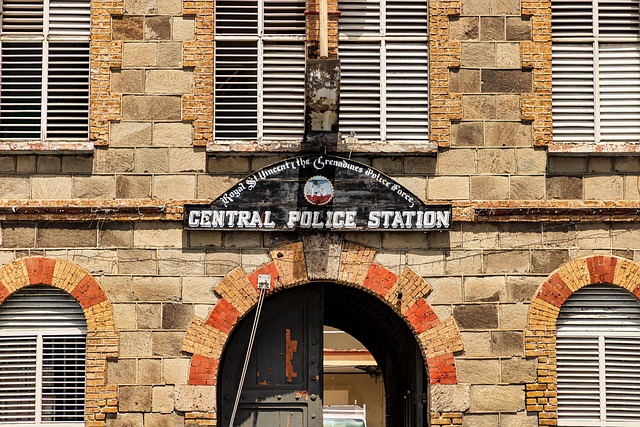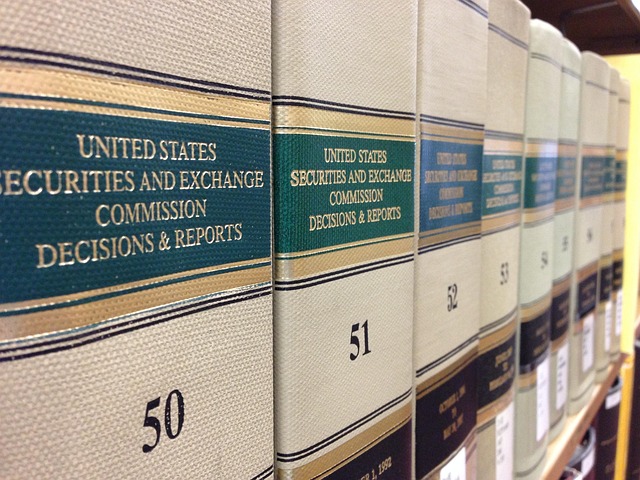In white-collar crime cases, mitigating penalties involves strategic legal defense by attorneys who challenge evidence admissibility, expose procedural errors, and leverage charitable/political initiatives. Alternative Dispute Resolution (ADR) through plea bargaining offers efficient resolutions. Post-conviction relief options minimize reputational damage. Successful strategies aim for fair treatment, rehabilitation, and a stronger business environment post-crisis.
“Criminal Law Enforcement: Navigating Complexities of White-Collar Crimes and Legal Defenses
In today’s digital age, white-collar crimes pose significant challenges to law enforcement. This article delves into the intricate world of corporate scandals and their impact on society. We explore strategic legal defenses, emphasizing evidence management for lighter sentences. Alternative dispute resolution, such as plea bargains, is a game-changer in mitigating penalties. Additionally, we discuss post-conviction relief options, crucial for those seeking to mitigate damages and move forward after a conviction.”
- Understanding White-Collar Crimes and Their Impact
- Legal Strategies for Defense in Corporate Scandals
- The Role of Evidence in Securing Light Sentences
- Alternative Dispute Resolution: Negotiating Plea Bargains
- Mitigating Damages: Post-Conviction Relief Options
Understanding White-Collar Crimes and Their Impact

White-collar crimes, often perceived as non-violent financial offenses, can have profound impacts on individuals and society at large. These crimes, ranging from fraud to money laundering, are typically committed by business professionals or those in positions of trust. The consequences for conviction include severe penalties, including substantial fines and imprisonment, which can devastate both the convicted individual’s life and their respective business. Understanding these crimes is crucial for anyone involved in general criminal defense, as mitigating penalties in white-collar crime cases often involves complex legal strategies tailored to each client’s unique situation.
The impact of white-collar crime extends beyond monetary losses; it can erode public trust in institutions and markets. Effective prosecution and sentencing play a vital role in deterring future misconduct, but so does the ability of a skilled defense attorney to navigate these cases. By examining the specific circumstances and motivations behind the offense, attorneys can build robust defenses that not only protect their clients’ rights but also foster accountability within the business community.
Legal Strategies for Defense in Corporate Scandals

In the face of corporate scandals, legal strategies for defense play a pivotal role in mitigating penalties for white-collar crime cases. One key approach is to challenge the admissibility of evidence, ensuring that any information used against the corporation is obtained legally and without violation of privacy or confidentiality agreements. This strategy can significantly weaken the prosecution’s case, aiming for a complete dismissal of all charges if possible. By scrutinizing the gathering and handling of evidence, defense lawyers can expose procedural errors that may lead to the exclusion of potentially damaging data.
Additionally, corporations accused of white-collar and economic crimes often leverage their philanthropic and political communities as a form of defense. This strategy involves showcasing corporate charitable initiatives or political involvement as a counterbalance to the alleged misconduct. By presenting a positive public image, companies can argue that any deviations from ethical standards were isolated incidents rather than systemic issues. Such an approach seeks to protect not only the corporation but also its employees, distinguishing between personal responsibility and organizational culpability.
The Role of Evidence in Securing Light Sentences

In criminal law enforcement, evidence plays a pivotal role in securing light sentences for defendants, particularly in white-collar crime cases. The presentation of compelling and relevant evidence can significantly mitigate penalties by demonstrating to the court that the accused did not intend to cause harm or engage in malicious activities. This is especially crucial given the often complex financial transactions and intricate legal maneuvers involved in such cases.
By employing a thorough examination of documents, digital records, and expert testimony, defense attorneys can uncover nuances that challenge the prosecution’s case. An unprecedented track record of winning challenging defense verdicts across the country underscores the importance of robust evidence in disentangling fact from fiction and ensuring fairness within the legal system.
Alternative Dispute Resolution: Negotiating Plea Bargains

Alternative Dispute Resolution (ADR) plays a significant role in criminal law enforcement, particularly in white-collar crime cases. One of its most common applications is negotiating plea bargains. This process allows for a more efficient and cost-effective resolution compared to traditional litigation. During negotiations, defendants can mitigate penalties by cooperating with prosecutors, providing substantial evidence against co-conspirators, or disclosing information that aids in the investigation.
Plea bargaining offers benefits across the country, ensuring that law enforcement agencies can focus their resources on other critical matters while also achieving winning challenging defense verdicts. By involving ADR at all stages of the investigative and enforcement process, the justice system can balance the need for punishment with the potential for rehabilitation, ultimately leading to more just outcomes in criminal cases.
Mitigating Damages: Post-Conviction Relief Options

In white-collar crime cases, mitigating damages goes beyond simply avoiding a conviction. It involves exploring post-conviction relief options to mitigate penalties and achieve extraordinary results for the respective business. This strategic approach leverages an unprecedented track record of successful appeals and motions to reduce or dismiss charges, thereby minimizing the impact on the company’s reputation and financial health.
By focusing on these post-conviction strategies, legal teams can navigate complex legal landscapes and ensure their clients receive fair treatment. This includes investigating procedural errors, challenging the admissibility of evidence, and arguing for alternative sentences that consider rehabilitative factors. Such efforts not only seek to minimize immediate penalties but also lay the groundwork for a stronger, more resilient business environment moving forward.
In navigating the complex landscape of criminal law enforcement, particularly within white-collar crime cases, it’s evident that a multifaceted approach is key. From understanding the intricate nature of these crimes to employing strategic defenses and leveraging evidence effectively, each component plays a crucial role in securing just outcomes. By exploring alternative dispute resolution methods like plea bargaining and recognizing the importance of post-conviction relief options, legal professionals can actively contribute to mitigating penalties. Ultimately, embracing innovative strategies ensures a more balanced approach to justice in white-collar crime scenarios.






